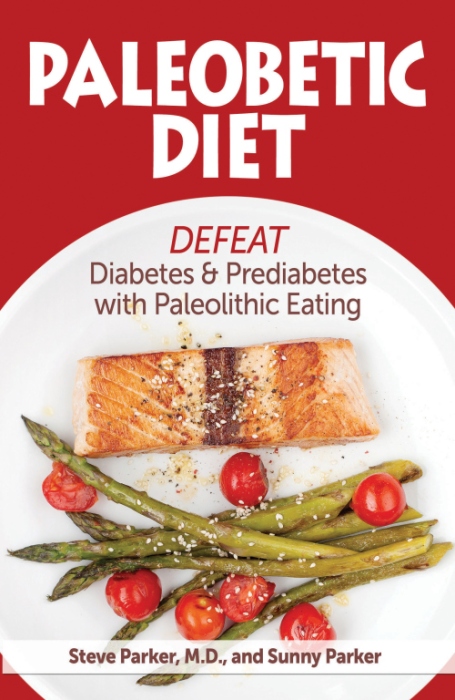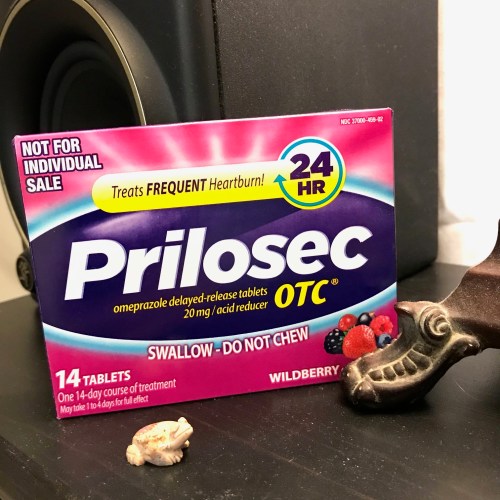RSS Feed
-
Join 417 other subscribers
Top Posts & Pages
- Paul Ingraham on Patellofemoral Pain Syndrome (PFPS)
- Nomad Capitalist Ranks Ireland Among the Four Most Free Countries
- QOTD: James Fell on Cooking and Weight Management
- Nuttin' But Salads N=1 Experiment: Week 13 Summary
- High cholesterol doesn't cause heart disease. Say what?
- Low-Carb Diet May Help Your Knee Arthritis, Regardless of Weight Loss
- Aspirin 325 vs 81 mg/day: Which is Better?
-
Most Recent Posts
Categories
- Advice To My Children (9)
- Alcohol (39)
- Alzheimer Disease (29)
- ANFSCD (9)
- Bariatric Surgery (2)
- Book Review (4)
- Boy Scouts (13)
- Cancer (40)
- Chocolate (2)
- Coronary Heart Disease (54)
- Coronavirus (217)
- Dementia (61)
- Diabetes (77)
- Diet Reviews (25)
- Diet-Heart Hypothesis (8)
- Economics (2)
- Exercise (124)
- Glycemic Index (8)
- green tea (13)
- Healthcare Reform (49)
- Heart Disease (92)
- Heart Failure (2)
- High Blood Pressure (21)
- Hiking (21)
- Ketogenic Mediterranean Diet (38)
- Kidney Disease (1)
- knee pain (11)
- Liver Disease (16)
- Longevity (118)
- Low Back Pain (11)
- Low-Carb Eating (26)
- Low-Carb Mediterranean Diet (21)
- Lungs (3)
- Metabolic Syndrome (7)
- My Fitness (19)
- Nuts (12)
- Osteoporosis (7)
- Outdoors (3)
- Overweight & Obesity (91)
- Paleo Diet (6)
- Parkinson's Disease (1)
- Pollution (3)
- prediabetes (3)
- Prepare For Weight Loss (8)
- QOTD (47)
- Quote of the Day (51)
- Recipes (47)
- Salads (22)
- Shameless Self-Promotion (13)
- Stroke (32)
- Sugar (10)
- Sugar Substitutes (8)
- Supplements (8)
- Uncategorized (495)
- Vegetarianism (4)
- Weight Loss (119)
- Weight Regain (16)
- Weight-Loss Drugs (7)
Blogroll
Links
Worthwhile Sites
Google+ Profile
Category Archives: Uncategorized
Easter’s Not About Eggs and Bunnies: Christ Is King!

John 3:16:
For God so loved the world that he gave his one and only Son, that whoever believes in him shall not perish but have eternal life.
Posted in Uncategorized
Red Meat Might Cause Type 2 Diabetes

Red meat consumption — whether processed or not — was linked to onset of type 2 diabetes in the U.S. according to a 2023 article in American Journal of Clinical Nutrition. The research was a long-term observational study by mostly Harvard-based scientists. Among the authors that might be familiar to you are Walter Willett, Frank Hu, and Frank Sacks. Click the link for the deets.
This doesn’t prove that red meat consumption causes diabetes. But if you enjoy a fair or high amount of red meat, you might benefit by cutting back, especially if diabetes runs in your family. I’d also suggest regular exercise and avoiding overweight and obesity to reduce your risks of type 2 diabetes. The author suggest red meat alternatives: nuts, legumes, dairy foods.
In the same journal issue is a commentary by Daan Kremer. Some snippets:
The current observational study is unlikely to end the discussion on whether red meat intake increases risk of type 2 diabetes and even less likely to end the epistemological debates on how to grade quality of observational evidence when many efforts are made to reduce bias and confounding.
+ + +
All in all, the study by Gu et al. may arguably be the best evidence to date on the relation between red meat intake and type 2 diabetes. Yet somehow, I feel that the books have not been closed.
Steve Parker, M.D.

Posted in Uncategorized
Mild-Blowing Interview by Tucker Carlson of Mike Benz, Exec. Director of Foundation For Freedom Online

Mr Benz alleges that the waves of online speech censorship we’ve seen since ~2018 are due to collusion between the legacy media/social media giants and the U.S. State Department, Department of Homeland Security, FBI, CIA, NGOs, and the Department of Defense. And it’s not limited to the U.S. In fact, it started with efforts to by the CIA and DoD to combat international terrorism and meddle in other countries’ politics.
Click for the Foundation For Freedom Online website.
The Deep State does not appreciate this interview. I hope Mr Benz has a hefty life insurance policy. He should have stated for the record that he is not now nor has he ever been suicidal, and he’d never kill himself. I would not knowingly get in an airplane or in a car with him.
If you can impeach Mr Benz’s credibility, please share in the Comments.
This interview is more important the Tucker’s recent interview of Putin.
Steve Parker, M.D.
Posted in Uncategorized
Neurontin or Lyrica for Chronic Pain?

Physicians in the U.S. who prescribe opioids need a license from the Drug Enforcement Administration and it has to be renewed periodically. By the time of my next renewal, I must be able to prove to the DEA that I’ve had six (eight?) hours of approved continuing medical education on drug abuse and addiction. Because of the prescription opioid “epidemic” that reared it’s head several years ago, regulators are putting pressure on prescribers to reduce prescriptions. I’m not saying that’s a bad thing, but it can be taken too far, like expecting a patient with very recent knee or hip replacement surgery to be just fine with acetaminophen (aka paracetamol) alone. Big Pharma has convinced some prescribers to substitute opioids with Neurontin (aka gabapentin) or Lyrica (pregabalin). If not substitution, then augmentation of opioid effect at lower doses. I definitely see that in my part of the world.
Regarding that, here’s a thought-provoking article from Paul Ingraham:
One of the most notorious examples of Big Pharma living up to its reputation for evil-doing is the illegal promotion of anticonvulsant drugs like Neurontin and Lyrica for painful problems like back pain. Pfizer coughed up billions for lawsuit settlements and record-breaking fines. I think it’s safe to say that they didn’t actually pay enough to undo the damage, though…
Thanks to that horror show, and to research by Peet et al, we now know that there was a mighty 5× surge in gabapentin prescriptions in the 2000s and 2010s. That was — and continues to be — a chilling demonstration of the power of under-handed and well-funded marketing. Even as opioid prescriptions fell somewhat, gabapentin scrips rose dramatically, despite the dubious value for most of what it was being prescribed for (most kinds of pain).
Steve Parker, M.D.

Posted in Diabetes, Uncategorized
Do You Hate Broccoli?
If so, it may well be because of your genes according to an article at SBS.com. Particular genes determine whether you can detect a bitter chemical (called PTC) in broccoli and other brassicas like cauliflower and brussels sprouts.

“On average, about 70% of us can taste something bitter in broccoli or PTC, but those with two copies of the bitter sensitivity gene are closer to 20%, and they are much more likely to hate it.”
U.S. President George H.W. Bush said in March 1990, “I do not like broccoli. And I haven’t liked it since I was a little kid and my mother made me eat it. And I’m President of the United States and I’m not going to eat any more broccoli!” He banned it on Air Force One.
Most of us at the Parker Compound like broccoli. My wife usually sautes it in olive oil and seasons with garlic, other herbs, and salt.
Steve Parker, M.D.


Click to purchase at Amazon.com. E-book also available at Smashwords. com.
Comments Off on Do You Hate Broccoli?
Posted in Uncategorized
Why Eat Meat?

I found a review article at Animal Frontiers that makes the argument in favor of meat consumption. The authors admit little focus on the downsides of eating meat. I’ve been cutting back on my meat consumption out of sympathy for the animals. Here are some of the key points verbatim:
- Aspects of human anatomy, digestion, and metabolism diverged from other primates, indicating evolutionary reliance on, and compatibility with, substantial meat intake. Implications of a disconnect from evolutionary dietary patterns may contribute to today’s burden of disease, increasing the risk for both nutrient deficiencies and chronic diseases.
- Meat supplies high-quality protein and various nutrients, some of which are not always easily obtained with meat-free diets and are often already suboptimal or deficient in global populations. Removal of meat comes with implications for a broad spectrum of nutrients that need to be accounted for, whereas compensatory dietary strategies must factor in physiological and practical constraints.
- Although meat makes up a small part (<10%) of global food mass and energy, it delivers most of the global vitamin B12 intake and plays a substantial role in the supply of other B vitamins, retinol, long-chain omega-3 fatty acids, several minerals in bioavailable forms (e.g., iron and zinc), and a variety of bioactive compounds with health-improving potential (e.g., taurine, creatine, and carnosine).
- As a food matrix, meat is more than the sum of its individual nutrients. Moreover, within the diet matrix, it can serve as a keystone food in food-based dietary interventions to improve nutritional status, especially in regions that rely heavily on cereal staples.
- Efforts to lower global meat intake for environmental or other reasons beyond a critical threshold may hinder progress towards reducing undernutrition and the effects this has on both physical and cognitive outcomes, and thereby stifle economic development. This is particularly a concern for populations with increased needs and in regions where current meat intake levels are low, which is not only pertinent for the Global South but also of relevance in high-income countries.
Steve Parker, M.D.

Comments Off on Why Eat Meat?
Posted in Uncategorized
Shawn Ryan’s Memorial Day Message 2023
Comments Off on Shawn Ryan’s Memorial Day Message 2023
Posted in Uncategorized
How to Manage GERD Without Proton Pump Inhibitors

I’ve written several blog posts on the risks of chronic use of PPIs (proton pump inhibitors) for gastro-esophageal reflux disease (GERD). By “chronic use” I mean daily or several days every week. In order to avoid the risks of PPI usage, a recent commenter asked me about non-PPI management options.
I’ll assume that occasional use of antacids, H2 blockers (histamine 2 receptor agonists like famotidine), and proton pump inhibitors is not an adequate remedy. At some point (sooner rather than later), you’ll also want to be sure the diagnosis truly is GERD and not something else. This may well require a consultation with a gastroenterologist.
BTW, having to pop a couple Tums antacids for heartburn once every 2-3 months is not a disease. It’s not GERD. It’s occasional heartburn. Untreated GERD symptoms are much more frequent and may be more intense or more prolonged.
So here are some non-PPI options for management of GERD in adults. Some of these will help one person but not the next, and experimentation may be in order.
- Lose excess weight. Even common overweight can aggravate the condition.
- Elevate head of bed on 6-8 inch bricks.
- Avoid supine posture after meals.
- No eating for 2-3 hours prior to bedtime.
- Avoid tobacco and alcohol.
- Low-carb diet.
- Avoid tight-fitting garments over the abdomen.
- Avoid common triggers: spicy food, carbonated beverages, onions (especially raw), chocolate, high-fat foods, caffeine. If you’re sure these don’t trigger your own GERD, then no particular need to avoid. A spicy meal one week ago doesn’t cause your GERD today. Your triggers will typically be ingested 30 minutes to 8 hours prior to symptom onset.
Medication alternatives to PPIs and H2 blockers (histamine 2 receptor agonists like famotidine):
- Sucralfate if pregnant.
- Metoclopramide if gastroparesis is present (delayed gastric emptying).
- Sodium alginate.
Bothersome symptoms that are refractory to all usual treatment? Get EGD (esophagogastroduodenoscopy) and ambulatory esophageal pH-metry from a gastroenterologist.
Final options for refractory GERD:
- Anti-reflux surgery
- Transoral incisionless fundoplication
There are probably other options for GERD suppression that I haven’t mentioned.
Finally, I’m not your doctor and don’t know any of the details of your situation. For all you know, I may not even be a real doctor. Work with your personal physician!
Steve Parker, M.D.


Click to purchase at Amazon.com. E-book also available at Smashwords. com.
Comments Off on How to Manage GERD Without Proton Pump Inhibitors
Posted in Uncategorized



